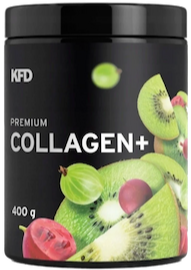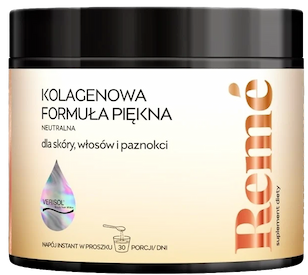Is collagen supplementation worth it? Does it work?
Collagen supplementation can support the condition of hair, skin, nails and joints.


Learn more about our editorial process
.

Learn more about our editorial process
.

Learn more about our editorial process
.

Learn more about our editorial process
.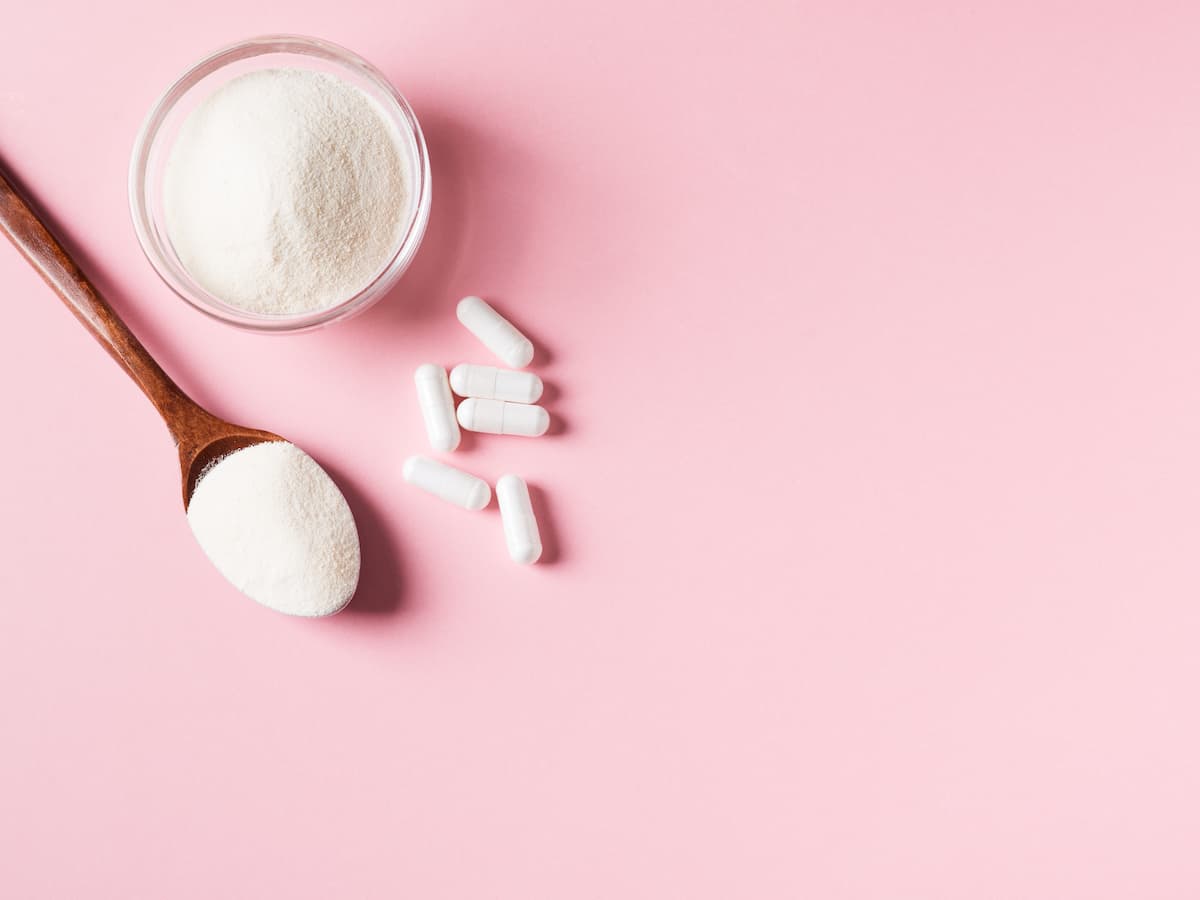
Why you can trust us
Articles on Natu.Care are written based on scientific research, data from government websites and other reliable sources. The texts are written in cooperation with doctors, nutritionists and other health and beauty experts. Articles are reviewed before publication and during significant updates.
.Learn more about our editorial process
.Information about advertisements
Content on Natu.Care may contain links to products from the sale of which we may receive a commission. When creating content, we adhere to high editorial standards and take care to be objective about the products discussed. The presence of affiliate links is not dictated by our partners, and we select the products we review ourselves completely independently.
.Learn more about our terms and Conditions
.Collagen supplementation is gaining popularity at a tremendous rateand. The PMI organisation values the collagen market at $9.3 billion. Forecasts suggest that this value will grow to 23.1 billion by 2030 .
All of this makes you squint skeptically - do such products have any value beyond the price?"
.
With nutritionist, Julia Skrajda, we have reviewed dozens of studies and compiled key information about collagen intake and its effectiveness.
From this article you will learn:
- What effects collagen supplementation has and who should consider it. .
- What are the best collagen supplements available on the market. .
- Whether collagen supplementation is associated with contraindications or side effects. .
- How long to supplement with collagen to see results. .
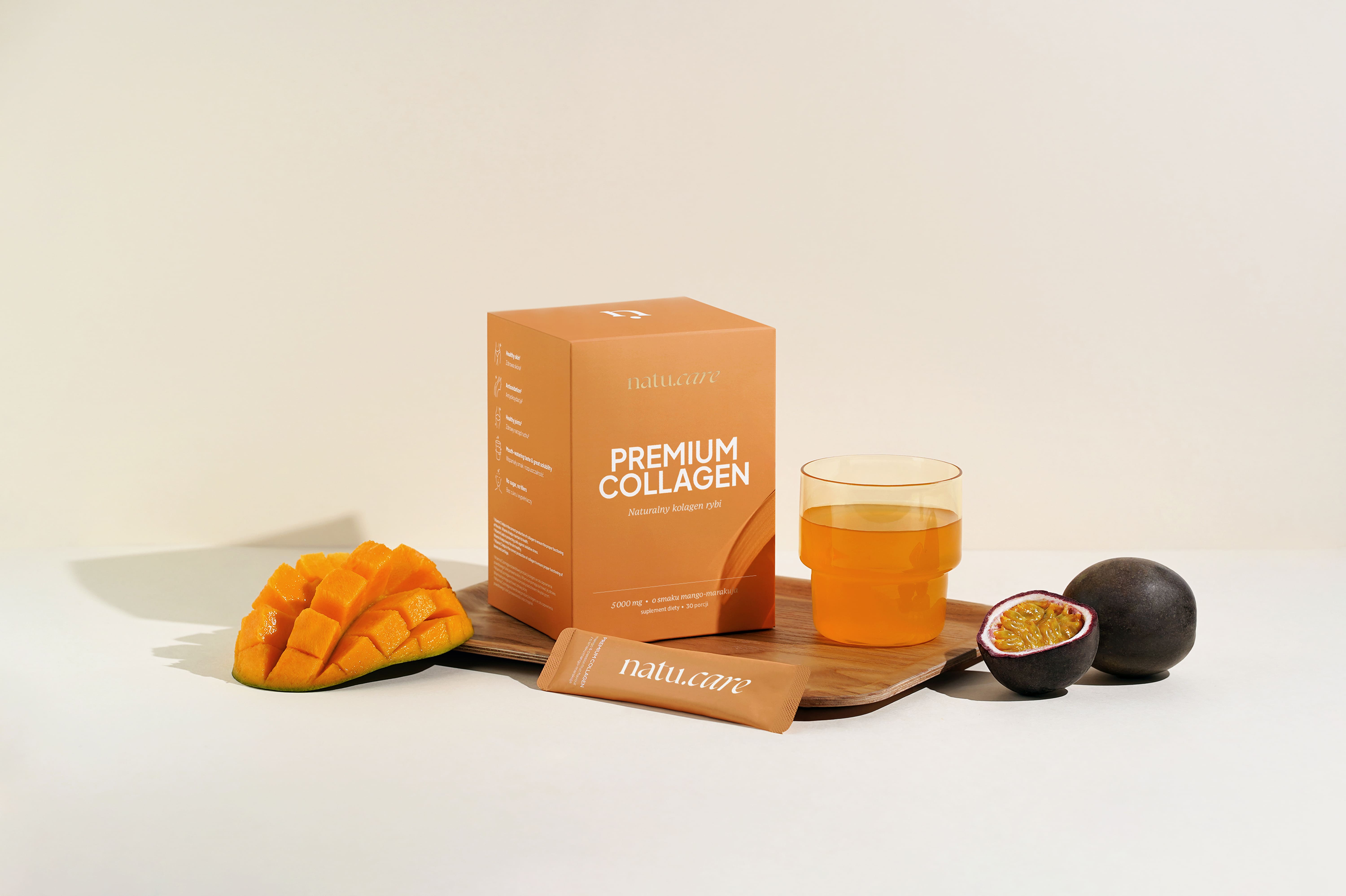
Sprawdź, za co pokochały go tysiące klientek Kolagen Premium 5000 mg, mango-marakuja
Natu.Care Kolagen Premium 5000 mg, mango-marakuja
Natu.Care Kolagen Premium dla zdrowia stawów, skóry, paznokci i włosów. Najlepsza przyswajalność. Optymalna dawka 5 000 lub 10 000 mg. Przebadany przez niezależne laboratorium.
Zobacz więcej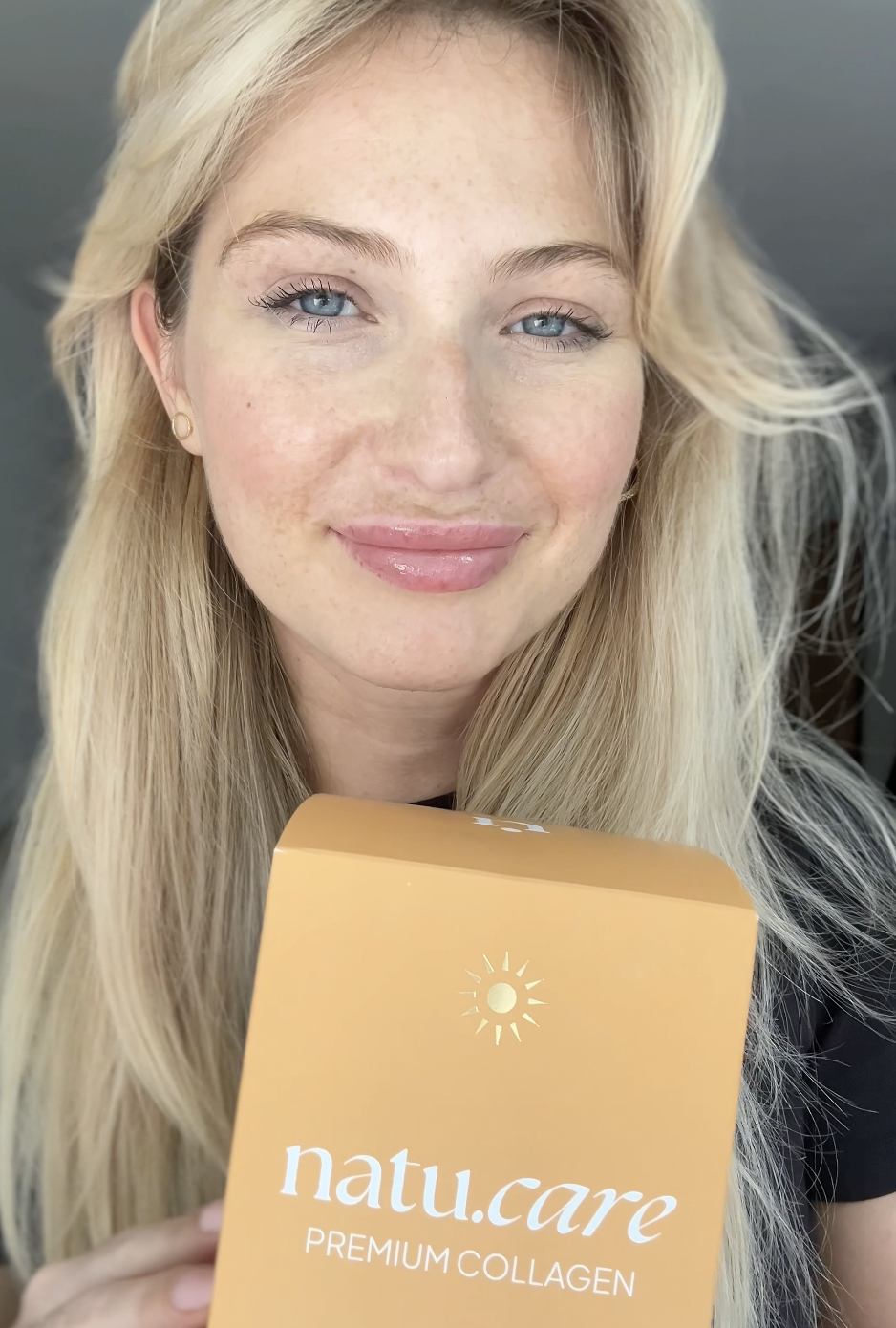
Wybrałam kolagen Natu.Care, ponieważ miał super opinie – a to było dla mnie bardzo ważne! Odkąd go stosuję, moja skóra znacznie się poprawiła i jest nawilżona, a na głowie pojawiły się nowe "baby hair".@Kasia S.
See also:
.
- The most powerful collagen .
- Collagen for wrinkles
- Collagen for skin
- Facial collagen
- Collagen for joints
- Hair collagen
- Collagen for acne
- Collagen for cellulite
- Collagen for stretch marks
- Collagen for scars
What are the effects of collagen supplementation?
.
Collagen is the most important structural protein in the body and is a key component of connective tissue, muscles, tendons, skin, hair and nailsand.
As we age, the body's natural production of collagen decreases, making collagen supplementation essential for maintaining a youthful appearance and health.
Makes skin firmer
.
Collagen supplementation helps to maintain skin elasticity and firmness. This can lead to a reduction in visible wrinkles and fine lines. Collagen also stimulates the skin's regenerative processes, speeding up wound healing and improving the quality of scarsand.
Elasticises hair
.
Collagen helps to nourish hair and promote hair growth by extending the hair growth phase. Collagen supplementation can counteract hair loss and help hair retain density and elasticityand.
Stiffens nails
.
Regular intake of collagen strengthens nails, preventing breakage. Nails grow faster and healthierand.
Protects tendons and joints
.
Collagen is a key component of cartilage, tendons and ligaments, and supplementation can improve the flexibility and strength of these structures. Collagen supplements can reduce joint pain and stiffness, as well as support the treatment of conditions such as arthritis and osteoarthritisand.
Stimulates immunity
.
Collagen supplementation can improve the body's immune system, especially by strengthening mucous membranes, which have a protective function against external threats such as viruses and bacteria .
Additionally, collagen influences the regulation of the immune response, reducing pro-inflammatory cytokines and inflammation in the body.
.
Develops muscles
.
Collagen supplementation can lead to increased muscle mass, especially when combined with regular physical training. As an essential structural protein component, collagen promotes muscle regeneration and growth, helping you to perform better during exerciseand.
Sooths the digestive tract
.
Collagen has anti-inflammatory properties that can help repair and regenerate the digestive tract. This protein relieves symptoms of conditions such as leaky gut, irritable bowel syndrome and inflammatory bowel diseaseand.
Strengthens bones
.
Collagen is an important component of bones, contributing to their strength and resistance to fracture. Collagen supplementation supports bone health, stimulates bone density and reduces the risk of fracturesand.
Does collagen supplementation make sense?
.
Yes, collagen supplementation makes sense. Studies confirm that regular collagen intake has a positive effect on the condition of skin, hair, joints and nails. What's more, some supplements also support the body's production of collagen, helping to prevent deficiency and its unpleasant effectsand.
A meta-analysis of 26 randomised controlled clinical trials on 1,721 patients, published in 2023, suggests that collagen hydrolysate has a positive effect on skin hydration and elasticity .
Another, also from 2023, suggests that collagen peptides have a positive effect on the cardiovascular system .
And there's a whole lot of literature to explore in our other articles (take a peek at the last section, Resources).
Is it worth drinking collagen?
.
Yes, it is worth drinking collagen because it works for skin, hair, nails and joints. Supplementing with drink collagen can have noticeable effects on just these elements. That's why drinking collagen makes sense if you want to firm up your skin, strengthen your nails and hair, and ensure healthy joints and even immunity.
What are the benefits of drinking collagen?
.
- Firm, supple and moisturised skin.
Collagen is a great way to improve your skin.
- Healthy, strong and unbreakable nails.
- Healthy, strong and unbreakable nails.
- Shiny and robust hair.
.
- Healthy joints and bones.
.
- Better immunity.
.
Collagen supplements
.
Natu.Care Collagen Premium 5000 mg, mango-maracuja

- Collagen content: 5000 mg marine collagen hydrolysate
- .
- Additional active ingredients: vitamin C, low molecular weight hyaluronic acid (and L-theanine and coenzyme Q10 in cocoa flavoured collagen or vitamin A and vitamin E in mango–passion fruit flavoured collagen)
- .
- Form: powder sachets
- .
- Dose: 1 sachet per day
- .
- Sufficient for: 30 days
- .
Product description
Fish collagen from the Natu.Care brand in a dose of 5000 mg. The formula contains a sufficient portion of the active substance to positively affect your joints, musculoskeletal system and immunity.
Take care of your tendons, joint cartilage, ligaments, muscles and even bones by supplying them with the building blocks to function properly. Move without bólu and provide the necessary support for any physical activity.
And as a „gratis” to regular supplementation, you will also receive firm skinóhand, healthy and shiny hair and strong nails.
Natu.Care Premium Collagen is available in two flavours – Cacao Bloom and Rise&Shine. Both formulas are based on the following active ingredients: marine collagen hydrolysate, wild roseóbud extract and hyaluronic acid.
Additionally, Cacao Bloom contains natural L-theanine, coenzyme Q10 and defatted Dutch cacao. Rise&Shine instead contains vitamin E and vitamin A.
These are the best collagens in the world.
These best fish collagens on the market also rós taste – Cacao Bloom is a treat for chocolate lovers. Rise&Shine will appeal to those whoóenjoy the refreshing taste of mangoófruit and passion fruit.
Pros and cons
Fish collagen from the Natu.Care brand in a dose of 5000 mg. The formula contains a sufficient portion of the active substance to positively affect your joints, musculoskeletal system and immunity.
Take care of your tendons, joint cartilage, ligaments, muscles and even bones by supplying them with the building blocks to function properly. Move without bólu and provide the necessary support for any physical activity.
And as a „gratis” to regular supplementation, you will also receive firm skinóhand, healthy and shiny hair and strong nails.
Natu.Care Premium Collagen is available in two flavours – Cacao Bloom and Rise&Shine. Both formulas are based on the following active ingredients: marine collagen hydrolysate, wild roseóbud extract and hyaluronic acid.
Additionally, Cacao Bloom contains natural L-theanine, coenzyme Q10 and defatted Dutch cacao. Rise&Shine instead contains vitamin E and vitamin A.
These are the best collagens in the world.
These best fish collagens on the market also rós taste – Cacao Bloom is a treat for chocolate lovers. Rise&Shine will appeal to those whoóenjoy the refreshing taste of mangoófruit and passion fruit.
Additional information
Fish collagen from the Natu.Care brand in a dose of 5000 mg. The formula contains a sufficient portion of the active substance to positively affect your joints, musculoskeletal system and immunity.
Take care of your tendons, joint cartilage, ligaments, muscles and even bones by supplying them with the building blocks to function properly. Move without bólu and provide the necessary support for any physical activity.
And as a „gratis” to regular supplementation, you will also receive firm skinóhand, healthy and shiny hair and strong nails.
Natu.Care Premium Collagen is available in two flavours – Cacao Bloom and Rise&Shine. Both formulas are based on the following active ingredients: marine collagen hydrolysate, wild roseóbud extract and hyaluronic acid.
Additionally, Cacao Bloom contains natural L-theanine, coenzyme Q10 and defatted Dutch cacao. Rise&Shine instead contains vitamin E and vitamin A.
These are the best collagens in the world.
These best fish collagens on the market also rós taste – Cacao Bloom is a treat for chocolate lovers. Rise&Shine will appeal to those whoóenjoy the refreshing taste of mangoófruit and passion fruit.
User review
Fish collagen from the Natu.Care brand in a dose of 5000 mg. The formula contains a sufficient portion of the active substance to positively affect your joints, musculoskeletal system and immunity.
Take care of your tendons, joint cartilage, ligaments, muscles and even bones by supplying them with the building blocks to function properly. Move without bólu and provide the necessary support for any physical activity.
And as a „gratis” to regular supplementation, you will also receive firm skinóhand, healthy and shiny hair and strong nails.
Natu.Care Premium Collagen is available in two flavours – Cacao Bloom and Rise&Shine. Both formulas are based on the following active ingredients: marine collagen hydrolysate, wild roseóbud extract and hyaluronic acid.
Additionally, Cacao Bloom contains natural L-theanine, coenzyme Q10 and defatted Dutch cacao. Rise&Shine instead contains vitamin E and vitamin A.
These are the best collagens in the world.
These best fish collagens on the market also rós taste – Cacao Bloom is a treat for chocolate lovers. Rise&Shine will appeal to those whoóenjoy the refreshing taste of mangoófruit and passion fruit.
Natu.Care Collagen Premium 10000 mg, cherry

- Collagen content: 10,000 mg of hydrolyzed bovine collagen
- Additional active ingredients: vitamin C, low molecular weight hyaluronic acid, glucosamine, chondroitin, extract of Indian frankincense resin (boswellia serrata)
- Form: powder sachets for drinking
- Serving: 1 sachet per day
- Lasts for: 30 days
Product description
One of the strongest collagens on the market, providing as much as 10,000 mg per daily serving. This product can effectively support the condition of joints, skin, hair, and nails.
With this supplement, you will support your skeletal and joint system as well as your beauty, helping you visually halt the aging process and feel rejuvenated!
Pros and cons
Pros:
- The daily portion of collagen is very large – as much as 10,000 mg.
- Proven collagen formula – COLLinstant, whose effectiveness has been confirmed in clinical studies.
- Effective dose of hyaluronic acid, which additionally moisturizes the skin and positively affects joint health.
- Vitamin C supports the body's natural collagen production.
- Glucosamine is a fundamental building block of compounds found in joint cartilage and a component of collagen that gives elasticity to connective tissue in tendons.
- Chondroitin is a natural component found in the human body, mainly in cartilage. This large molecule (mucopolysaccharide) has the ability to absorb water, which helps maintain the elasticity and resilience of cartilage.
- Frankincense resin extract supports blood circulation and joint mobility and reduces their stiffness. It may help alleviate inflammatory conditions.
- The composition has been tested by the independent and accredited J.S. Hamilton laboratory.
Cons:
- None.
Additional information
Users praise Natu.Care Collagen Premium for the easy dissolving of the powder.
ALLDEYNN Collarose Fish
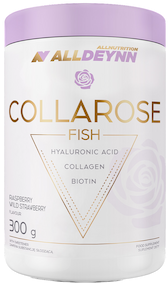
- Collagen content: 5000 mg hydrolysate fish collagen VERISOL F® .
- Additional active ingredients: vitamin C, hyaluronic acid, biotin
- Form: powder to dissolve in water .
- Dose: one scoop (6 g) of powder daily .
- Sufficient for: 50 days .
Product description
Atlantic cod collagen VERISOL F® contained in the formula are easily absorbed collagen peptides of fish origin. Regular supplementation can firm your skinóhand and slow down the ageing process. Your nails will become stronger and stop breaking. The addition of biotin will improve the condition of your hairów. The collagen portion is high enough to also have a good effect on your joints, muscles and bones.
Pros and cons
Atlantic cod collagen VERISOL F® contained in the formula are easily absorbed collagen peptides of fish origin. Regular supplementation can firm your skinóhand and slow down the ageing process. Your nails will become stronger and stop breaking. The addition of biotin will improve the condition of your hairów. The collagen portion is high enough to also have a good effect on your joints, muscles and bones.
Additional information
Atlantic cod collagen VERISOL F® contained in the formula are easily absorbed collagen peptides of fish origin. Regular supplementation can firm your skinóhand and slow down the ageing process. Your nails will become stronger and stop breaking. The addition of biotin will improve the condition of your hairów. The collagen portion is high enough to also have a good effect on your joints, muscles and bones.
Expert and user opinion
Atlantic cod collagen VERISOL F® contained in the formula are easily absorbed collagen peptides of fish origin. Regular supplementation can firm your skinóhand and slow down the ageing process. Your nails will become stronger and stop breaking. The addition of biotin will improve the condition of your hairów. The collagen portion is high enough to also have a good effect on your joints, muscles and bones.
DuoLife Collagen fish collagen 2500 mg
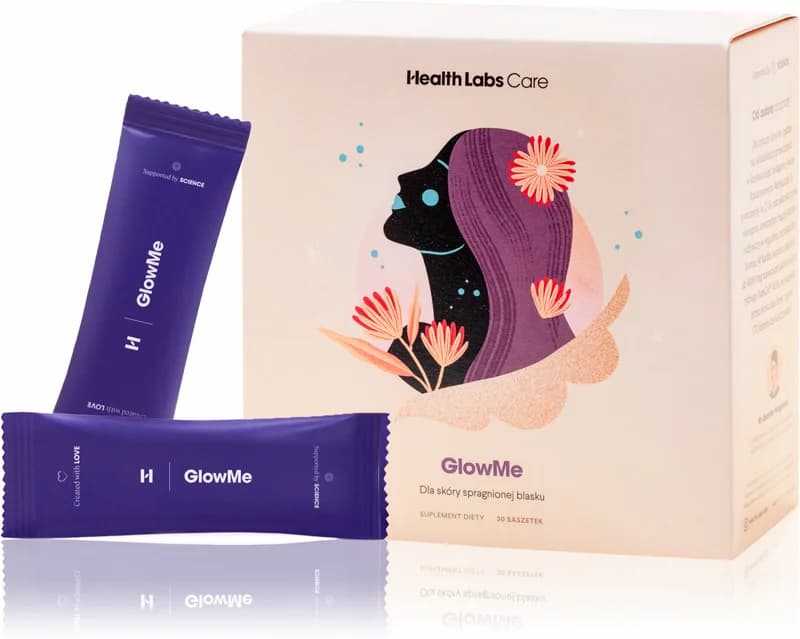
- Collagen content: 2500 mg collagen
- Additional active ingredients: vitamin C, silicon, glucosamine, hyaluronic acid, nettle and bamboo extracts
- Form: liquid to drink .
- Dose:25 ml .
- Sufficient for: 30 days .
Product description
100% natural collagen liquid without unnecessary ingredientsós. The composition of ingredientsós improves the appearance and condition of skinóry, hairów, nails. DuoLife is a good choiceór if you notice the first signs of skinóry ageing or want to stop this process. A tasty liquid, convenient to use.
Pros and cons
100% natural collagen liquid without unnecessary ingredientsós. The composition of ingredientsós improves the appearance and condition of skinóry, hairów, nails. DuoLife is a good choiceór if you notice the first signs of skinóry ageing or want to stop this process. A tasty liquid, convenient to use.
Additional information
100% natural collagen liquid without unnecessary ingredientsós. The composition of ingredientsós improves the appearance and condition of skinóry, hairów, nails. DuoLife is a good choiceór if you notice the first signs of skinóry ageing or want to stop this process. A tasty liquid, convenient to use.
User review
100% natural collagen liquid without unnecessary ingredientsós. The composition of ingredientsós improves the appearance and condition of skinóry, hairów, nails. DuoLife is a good choiceór if you notice the first signs of skinóry ageing or want to stop this process. A tasty liquid, convenient to use.
Pharmovit liquid collagen 10000 mg
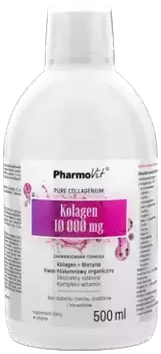
- Collagen content: 10000 mg hydrolysed bovine collagen types I and III .
- Additional active ingredients: hyaluronic acid, natural plant extracts, vitamin C, B vitamins, zinc, vitamin D
- Form: vials .
- Dose: 25 ml .
- Sufficient for: 20 days .
Product description
A solid daily dose of collagen for jointómuscle and bone health and beauty. The duo of collagen and vitamin C has a positive effect on each other, so that „the protein of youth” is better absorbed and more efficiently produced in the body.
Pros and cons
A solid daily dose of collagen for jointómuscle and bone health and beauty. The duo of collagen and vitamin C has a positive effect on each other, so that „the protein of youth” is better absorbed and more efficiently produced in the body.
Additional information
A solid daily dose of collagen for jointómuscle and bone health and beauty. The duo of collagen and vitamin C has a positive effect on each other, so that „the protein of youth” is better absorbed and more efficiently produced in the body.
KFD Premium Collagen+
Product description
High dose of collagen and a real bomb of vitamins C and D and organic sulphur. With this preparation the effects will come immediately. You will improve the firmness of your skin and reduce wrinkles. Your hair and nails will be strong and shiny.
A generous dose of collagen will improve the mobility of your jointsós, benefit your bone system and muscles. Do you do sports and need a product thatós able to keep up with your needs? This product will do the trick.
Pros and cons
High dose of collagen and a real bomb of vitamins C and D and organic sulphur. With this preparation the effects will come immediately. You will improve the firmness of your skin and reduce wrinkles. Your hair and nails will be strong and shiny.
A generous dose of collagen will improve the mobility of your jointsós, benefit your bone system and muscles. Do you do sports and need a product thatós able to keep up with your needs? This product will do the trick.
Additional information
High dose of collagen and a real bomb of vitamins C and D and organic sulphur. With this preparation the effects will come immediately. You will improve the firmness of your skin and reduce wrinkles. Your hair and nails will be strong and shiny.
A generous dose of collagen will improve the mobility of your jointsós, benefit your bone system and muscles. Do you do sports and need a product thatós able to keep up with your needs? This product will do the trick.
Expert opinion
High dose of collagen and a real bomb of vitamins C and D and organic sulphur. With this preparation the effects will come immediately. You will improve the firmness of your skin and reduce wrinkles. Your hair and nails will be strong and shiny.
A generous dose of collagen will improve the mobility of your jointsós, benefit your bone system and muscles. Do you do sports and need a product thatós able to keep up with your needs? This product will do the trick.
Product description
The dietary supplement from Remé contains beef collagen in a patented formula and vitamin C, whichóra aids its absorption. The formula comes in three flavours: neutral, orange-maracuja and strawberry-pomegranate. The formula can effectively support and improve the condition of the skinóry, hairóry and nails.
Pros and cons
The dietary supplement from Remé contains beef collagen in a patented formula and vitamin C, whichóra aids its absorption. The formula comes in three flavours: neutral, orange-maracuja and strawberry-pomegranate. The formula can effectively support and improve the condition of the skinóry, hairóry and nails.
Additional information
The dietary supplement from Remé contains beef collagen in a patented formula and vitamin C, whichóra aids its absorption. The formula comes in three flavours: neutral, orange-maracuja and strawberry-pomegranate. The formula can effectively support and improve the condition of the skinóry, hairóry and nails.
The dietary supplement from Remé contains beef collagen in a patented formula and vitamin C, whichóra aids its absorption. The formula comes in three flavours: neutral, orange-maracuja and strawberry-pomegranate. The formula can effectively support and improve the condition of the skinóry, hairóry and nails.
{ product:1eiyihgASLfslgpBv80Tk1 }}
{ product:3A6Dp6540L63Y3msHqwQCz }}
See also:
.
- The best collagen
- Drinking collagen
- Collagen powder
- Collagen in sachets
- Liquid collagen
- Collagen in tablets
- What collagen to choose
- The best-absorbed collagen
Which collagen to choose?
.
When choosing a collagen supplement, it is worth looking at the following criteriaand:
- .
- Collagen content - effective formulations contain 2.5 to 15 grams of collagen hydrolysate.
- Purity of formulation -the absence of unnecessary preservatives, colours and other fillers is a major advantage. .
- Additional active ingredients - some vitamins and minerals (e.g. vitamin C) support collagen production and absorption in the body.
- Research -selected supplements boast laboratory studies that confirm their composition and safety of use.
- Form - powder, tablets or maybe a cream? It's better not to choose the latter - you'll find out why below.
- Origin - some manufacturers source collagen from farmed fish, when others fish from wild animals, taking care of the environment. Here you can see the full criteria. .
Hydrolysed and freeze-dried collagen - what are the differences?
.
Lyophilised collagen and hydrolysed collagen are two popular types of collagen. Which one is better and how do they differ?
.
What is hydrolysed collagen?
.
Hydrolysed collagen is a type of protein obtained through a hydrolysis process, during which the long collagen chains are broken down into shorter peptides of lower molecular weight. As a result, hydrolysed collagen is better absorbed by the body and its peptides show beneficial effects on the skin, hair, joints and digestive systemand.
.
What is freeze-dried collagen?
.
Lyophilised collagen is a product obtained through the use of a freeze-drying process, which is the freezing and evaporation of water from natural collagen (more difficult for the body to absorb). Freeze-drying maintains the structure of the collagen protein and removes moisture, preventing its degradationand.
Collagen stripped of water also has a smaller volume, allowing more of the substance to be put into capsules or tablets.
Which is better - hydrolysed or freeze-dried?
.
In summary, the main differences between hydrolysed and freeze-dried collagen are the production process and properties. Hydrolysed collagen is more absorbable by the body and its peptides have potentially beneficial properties for various body systemsand.
On the other hand, freeze-dried collagen preserves the structure of the protein, which may have beneficial effects on its stability and durability - however, this is not confirmed by research .
It is difficult to say which collagen is better. The amount of research comparing lyophilisates with hydrolysates is severely limited. However, I believe that it is the hydrolysed collagen that is more valuable. In its favour is the better bioavailability..
 .
.
Ilona Krzak Master of Pharmacy
.
What are the differences between fish (marine) and bovine collagen?
.
You can find two common collagens on sale - fish (marine) and bovine collagen. Pork collagen is also available in some cases, but it is less common and has similar properties to beef collagenand.
Results from preliminary animal studies suggest that supplementation with bovine collagen increases type I and III protein concentrations in the body. In contrast, the use of fish collagen has beneficial effects on type I and IIand.
In simple terms, this means that bovine collagen mainly supports skin health, increases elasticity and reduces wrinkles, while marine collagen has positive effects on the overall health of the dermis and on the condition of the hair, nails and cartilage .
.
Which one is better?
.
Both varieties of collagen can be effective. However, studies indicate that fish collagen is absorbed up to 50% better than bovine collagenand. Therefore, in most cases, fish collagen will be the preferred choice.
It is worth noting that marine collagen has a higher risk of fish or seafood allergies, while bovine collagen is associated with the likelihood of animal-borne diseases. The key point here is whether you have such allergies.
In summary, the overall properties of fish and beef collagen (for example, the beneficial effects on the skin) are very similar.
Fish collagen, however, has smaller molecules than bovine collagen, making it better and faster absorbed by the bodyand.
.
What is the best type of collagen?
.
When choosing collagen, it is also worth noting the main types of this protein and their propertiesand:
- Type I. Collagen type 1 accounts for about 90% of the total collagen in the body, contributes to the health of skin, hair and nails, as well as supporting bone structure.
- Type II. Type 2 collagen is the main component of joint cartilage, affects the elasticity and strength of cartilage, and can also help relieve symptoms of joint conditions such as osteoarthritis.
- Type III. Type 3 collagen Constitutes about 10% of collagen in the body, works with type I collagen, influences the elasticity and strength of blood vessels and tissues, and supports muscle health.
- Type V. Collagen is found in connective tissue, cell membranes and fetal tissue; it is involved in the formation of lining membranes, strengthens the immune system and affects the health of cell coatings.
- Type X. Occurs mainly in bone tissue and has an important role in bone mineralisation and the growth of vitreous cartilage, as well as influencing the regeneration of articular cartilage. .
Choosing a particular type of collagen depends on individual needs and expected health benefits.
Why does collagen in cream not work?
.
Collagen in cream does not provide the expected benefits as the protein has molecules that are too large to penetrate the dermis. Collagen may externally and temporarily moisturise and firm the skin, but it will never support it long termand.
External application of collagen, for example through the use of a cream, does not produce the results that manufacturers guarantee. Creams containing collagen can smooth the skin and help to retain moisture. However, the smoothing effect is temporary because the collagen molecule is too large to penetrate the skin barrier..
 .
.
Witold Tomaszewskidoctor of medical sciences
.Is collagen vegan?
.
No. Collagen is an animal protein, so all collagen supplements are not vegetarian or vegan. However, scientists are working on genetically modified collagen from yeast or bacteria. Research is also underway to produce 'plant-based' collagen from bamboo or riceand.
What are the contraindications to the use of collagen?
.
Collagen is safe for the general public. Nevertheless, there are some contraindications to its use. Who should avoid supplements with this protein?
.
Contraindications to the use of collagenand:
- .
- allergies to the ingredients in the preparation, .
- pregnancy and breastfeeding period, .
- taking selected medications, .
- kidney and liver diseases, .
- autoimmune disorders, .
- gastrointestinal problems, .
Side effects of collagen supplementation
.
Side effects with collagen supplementation are rare. However, some people may experience side effects.
Side effects with collagen supplementation includeand:
- Allergic reactions. Some people may be allergic to collagen, especially if it is of fish (marine) origin. If allergic symptoms such as rash, itching or swelling occur, discontinue use of the product and consult a doctor. .
- Gastrointestinal discomfort. Selected individuals may experience bloating, nausea or stomach pain after consuming collagen. .
Can collagen be supplemented during pregnancy?
.
There are no studies showing that you cannot supplement collagen during pregnancy. But... there is also no research that says you can. Therefore, if you want to be sure that taking collagen will not harm you or your baby - contact a specialist.
How to take collagen?
.
Collagen should be taken as recommended by the manufacturer, doctor or pharmacist. The specific dosage depends on the preparation chosen, but should never be exceeded. Although overdosing on collagen is rare, it is very easy to overdose on the additional nutrients present in supplements (e.g. vitamins and minerals).
How long can collagen be supplemented for?
.
Collagen can be supplemented continuously. You should notice the first effects of taking this protein after 8-24 weeks of regular supplementation. If, after this time, the product has not worked for you, it is worth considering changing to a more effective product (such as one that contains 10,000 mg of collagen)and. Oh, and take collagen any time - as long as it's regular!
Who should supplement with collagen?
.
Consider collagen supplementation, especially when you reach the age of 25-30. This is the point at which natural collagen production starts to decline. It's worth supplementing this ingredient preemptively, even before symptoms of deficiency appear, to delay skin ageing and support overall connective tissue healthand.
If, however, you observe the first signs of collagen deficiency, this is a sign that supplementation should be considered.
Symptoms of collagen deficiency includeand:
.
- Wrinkles and loss of skin firmness. Decreased collagen levels can lead to wrinkles and sagging skin, a result of the progressive aging process.
- Joint pain. Collagen deficiency can cause discomfort in joints, as the protein is responsible for their flexibility and mobility.
- Fragile nails. Collagen is involved in the crystallisation of amino acids essential for the structure of nails, so their weakness may be a symptom of a lack of the youthful protein.
- Hair weakness. Collagen plays a significant role in hair structure - a deficiency can contribute to hair weakness and hair loss.

Sprawdź, za co pokochały go tysiące klientek Kolagen Premium 5000 mg, mango-marakuja
Natu.Care Kolagen Premium 5000 mg, mango-marakuja
Natu.Care Kolagen Premium dla zdrowia stawów, skóry, paznokci i włosów. Najlepsza przyswajalność. Optymalna dawka 5 000 lub 10 000 mg. Przebadany przez niezależne laboratorium.
Zobacz więcej
Wybrałam kolagen Natu.Care, ponieważ miał super opinie – a to było dla mnie bardzo ważne! Odkąd go stosuję, moja skóra znacznie się poprawiła i jest nawilżona, a na głowie pojawiły się nowe "baby hair".@Kasia S.
See also:
.
- What collagen is .
- Contraindications to the use of collagen .
- How to rebuild collagen
- Collagen with vitamin C .
- Collagen for athletes
- Collagen in capsules
- Collagen after the age of 25
- Collagen after 40 years of age
- Collagen after 50 years of age
Summary
.
- Supplementation with collagen supports skin, hair, nails, tendons, joints and immunity.
- Collagen supplementation makes sense and can support the body from the inside out. .
- When choosing a collagen supplement, pay attention to: collagen content, purity of formulation, additional active ingredients, research, form and origin. .
- Hydrolysed collagen is absorbed faster than other types of protein. .
- Fish collagen can be absorbed up to 50% faster than bovine collagen. .
- The most important type of collagen in the body is type 1. .
- Contraindications and side effects with collagen supplementation are rare. .
- The main indications for collagen supplementation are poorer skin, hair, nails and joint pain. .
FAQ
What destroys collagen in the body?
.Collagen in the body is destroyed primarily by age. Although you can't stop time, there are several other factors that contribute to collagen loss in the body that are worth avoiding:
- UV radiation (remember to use screen creams), .
- inadequate diet (deficiency vitamins and minerals),
- smoking cigarettes, .
- abuse of coffee, .
- insufficient hydration, .
- poor sleep hygiene, .
- alcohol abuse, .
In addition to a proper diet, you can supplement collagen with dietary supplements. Check out the best collagens available on the market, such as: collagen 5000 mg Natu.Care, Colladrop Forte or collagen Sundose.
Is it worth drinking collagen?
.Yes, it is worth drinking collagen. It is a valuable protein that can positively affect various parts of the body, such as skin, hair, nails or joints. The liquid form is one of the most convenient, especially for people who do not like swallowing tablets.
Additionally liquid collagen or powder usually contains more active ingredient than capsule formulations.
Is collagen in tablets effective?
.Yes, collagen in tablets can be effective. Collagen in capsule or tablet form can give the same results as in liquid or powder form. By taking collagen in tablets, you can see positive changes on skin, hair or nails.
Does collagen affect weight loss?
.Collagen is not in itself a weight loss supplement and does not directly affect weight loss. However, its use can have a positive effect on weight loss by affecting metabolism and muscle recovery.
Collagen can also control appetite by affecting feelings of satiety. Scientific studies have shown that collagen supplements can help increase feelings of satiety, which can reduce daily calorie intake.
Collagen may also support healthy gastrointestinal function, which is crucial for efficient digestion and nutrient absorption.
Does collagen clog veins?
.There is no scientific evidence to suggest that collagen causes vein clogging. On the contrary, collagen can have a positive effect on the circulatory system, by increasing the elasticity of blood vessels and improving their function.
When blood vessels are more flexible, blood can flow more freely, which improves blood supply to tissues and organs and reduces the risk of cardiovascular disease.
What is native collagen?
.Native collagen (or natural) is a form of collagen that has not been subjected to chemical or mechanical processes, so it retains its full natural structure and function. This type of collagen can be obtained, for example, from fish, animal skins or cartilage tissue.
It is worth knowing, however, that native collagen is more difficult to absorb than, for example, collagen hydrolysate. Therefore, hydrolysed collagen formulations are usually the better choice.
.
Sources
.See all
.https://www.prophecymarketinsights.com, P. M. I. (n.d.). Global Collagen Market- Trends, Analysis and Forecast till 2030. Retrieved June 29, 2023, from https://www.prophecymarketinsights.com/market_insight/Global-Collagen-Market-By-Product-3774
insights, P. M. (2023, April 10). Collagen Market is estimated to be US$ 23.1 billion by 2030 with a CAGR of 10.8% during the forecast period-BY PMI. GlobeNewswire News Room. https://www.globenewswire.com/en/news-release/2023/04/10/2643686/0/en/Collagen-Market-is-estimated-to-be-US-23-1-billion-by-2030-with-a-CAGR-of-10-8-during-the-forecast-period-BY-PMI.html
Google trends. (n.d.). Google Trends. Retrieved 29 June 2023, from https://trends.google.com/trends/explore?date=all&q=%2Fm%2F01tj2&hl=en
Abedin, M. Z., Karim, A. A., Latiff, A. A., Gan, C.-Y., Ghazali, F. C., Barzideh, Z., Ferdosh, S., Akanda, M. J. H., Zzaman, W., Karim, M. R., & Sarker, M. Z. I. (2014). Biochemical and radical-scavenging properties of sea cucumber (Stichopus vastus) collagen hydrolysates. Natural Product Research, 28(16), 1302-1305. https://doi.org/10.1080/14786419.2014.900617
Abrahams, M., O'Grady, R., & Prawitt, J. (2022). Effect of a Daily Collagen Peptide Supplement on Digestive Symptoms in Healthy Women: 2-Phase Mixed Methods Study. JMIR Formative Research, 6(5), e36339. https://doi.org/10.2196/36339
Al-Atif, H. (2022). Collagen Supplements for Aging and Wrinkles: A Paradigm Shift in the Field of Dermatology and Cosmetics. Dermatology Practical & Conceptual, e2022018-e2022018. https://doi.org/10.5826/dpc.1201a18
Bernstein, E. F., Chen, Y. Q., Kopp, J. B., Fisher, L., Brown, D. B., Hahn, P. J., Robey, F. A., Lakkakorpi, J., & Uitto, J. (1996). Long-term sun exposure alters the collagen of thepapillary dermis: Comparison of sun-protected and photoaged skin by Northern analysis, immunohistochemical staining, and confocal laser scanning microscopy. Journal of the American Academy of Dermatology, 34(2, Part 1), 209-218. https://doi.org/10.1016/S0190-9622(96)80114-9
Bolke, L., Schlippe, G., Gerß, J., & Voss, W. (2019). A Collagen Supplement Improves Skin Hydration, Elasticity, Roughness, and Density: Results of a Randomized, Placebo-Controlled, Blind Study. Nutrients, 11(10), 2494. https://doi.org/10.3390/nu11102494
Boyera, N., Galey, I., & Bernard, B. a. (1998). Effect of vitamin C and its derivatives on collagen synthesis and cross-linking by normal human fibroblasts. International Journal of Cosmetic Science, 20(3), 151-158. https://doi.org/10.1046/j.1467-2494.1998.171747.x
Campana, V., Milano, G., Pagano, E., Barba, M., Cicione, C., Salonna, G., Lattanzi, W., & Logroscino, G. (2014). Bone substitutes in orthopaedic surgery: From basic science to clinical practice. Journal of Materials Science. Materials in Medicine, 25(10), 2445-2461. https://doi.org/10.1007/s10856-014-5240-2
Collagen Type 2-An overview | ScienceDirect Topics. (n.d.). Retrieved March 22, 2023, from https://www.sciencedirect.com/topics/medicine-and-dentistry/collagen-type-2
Collagen Type 3-An overview | ScienceDirect Topics. (n.d.). Retrieved February 23, 2023, from https://www.sciencedirect.com/topics/medicine-and-dentistry/collagen-type-3
Collagen Type 10-An overview | ScienceDirect Topics. (n.d.). Retrieved February 23, 2023, from https://www.sciencedirect.com/topics/medicine-and-dentistry/collagen-type-10
DePhillipo, N. N., Aman, Z. S., Kennedy, M. I., Begley, J. P., Moatshe, G., & LaPrade, R. F. (2018). Efficacy of Vitamin C Supplementation on Collagen Synthesis and Oxidative Stress After Musculoskeletal Injuries: A Systematic Review. Orthopaedic Journal of Sports Medicine, 6(10), 2325967118804544. https://doi.org/10.1177/2325967118804544
Elam, M. L., Johnson, S. A., Hooshmand, S., Feresin, R. G., Payton, M. E., Gu, J., & Arjmandi, B. H. (2015). A calcium-collagen chelate dietary supplement attenuates bone loss in postmenopausal women with osteopenia: A randomised controlled trial. Journal of Medicinal Food, 18(3), 324-331. https://doi.org/10.1089/jmf.2014.0100
Fisher, G. J., Quan, T., Purohit, T., Shao, Y., Cho, M. K., He, T., Varani, J., Kang, S., & Voorhees, J. J. (2009). Collagen Fragmentation Promotes Oxidative Stress and Elevates Matrix Metalloproteinase-1 in Fibroblasts in Aged Human Skin. The American Journal of Pathology, 174(1), 101-114. https://doi.org/10.2353/ajpath.2009.080599
Föger-Samwald, U., Dovjak, P., Azizi-Semrad, U., Kerschan-Schindl, K., & Pietschmann, P. (2020). Osteoporosis: Pathophysiology and therapeutic options. EXCLI Journal, 19, 1017-1037. https://doi.org/10.17179/excli2020-2591
Garnero, P. (2015). The Role of Collagen Organization on the Properties of Bone. Calcified Tissue International, 97(3), 229-240. https://doi.org/10.1007/s00223-015-9996-2
Harris, E. D., DiBona, D. R., & Krane, S. M. (1969). Collagenases in human synovial fluid. The Journal of Clinical Investigation, 48(11), 2104-2113. https://doi.org/10.1172/JCI106177
Jendricke, P., Centner, C., Zdzieblik, D., Gollhofer, A., & König, D. (2019). Specific Collagen Peptides in Combination with Resistance Training Improve Body Composition and Regional Muscle Strength in Premenopausal Women: A Randomized Controlled Trial. Nutrients, 11(4), 892. https://doi.org/10.3390/nu11040892
Kahan, V., Andersen, M. L., Tomimori, J., & Tufik, S. (2009). Stress, immunity and skin collagen integrity: Evidence from animal models and clinical conditions. Brain, Behavior, and Immunity, 23(8), 1089-1095. https://doi.org/10.1016/j.bbi.2009.06.002
Kahan, V., Andersen, M. L., Tomimori, J., & Tufik, S. (2010). Can poor sleep affect skin integrity? Medical Hypotheses, 75(6), 535-537. https://doi.org/10.1016/j.mehy.2010.07.018
Kjaer, M., Jørgensen, N. R., Heinemeier, K., & Magnusson, S. P. (2015). Chapter Eleven-Exercise and Regulation of Bone and Collagen Tissue Biology. IN C. Bouchard (Ed.), Progress in Molecular Biology and Translational Science (Vol. 135, pp. 259-291). Academic Press. https://doi.org/10.1016/bs.pmbts.2015.07.008
Komorowski, J., Ojalvo, S. P., Sylla, S., Cicek, D., Demir, B., Orhan, C., Tuzcu, M., Sahin, N., & Sahin, K. (2019). The Effect of a Combination of an Arginine Silicate Complex and Magnesium Biotinate on Hair and Nail Growth in Rats (P06-026-19). Current Developments in Nutrition, 3(Suppl 1), nzz031.P06-026-19. https://doi.org/10.1093/cdn/nzz031.P06-026-19
König, D., Oesser, S., Scharla, S., Zdzieblik, D., & Gollhofer, A. (2018). Specific Collagen Peptides Improve Bone Mineral Density and Bone Markers in Postmenopausal Women-A Randomized Controlled Study. Nutrients, 10(1), 97. https://doi.org/10.3390/nu10010097
Kujala, U. M., Kaprio, J., & Sarno, S. (1994). Osteoarthritis of weight-bearing joints of lower limbs in former elite male athletes. BMJ, 308(6923), 231-234. https://doi.org/10.1136/bmj.308.6923.231
Li, P., & Wu, G. (2018). Roles of dietary glycine, proline, and hydroxyproline in collagen synthesis and animal growth. Amino Acids, 50(1), 29-38. https://doi.org/10.1007/s00726-017-2490-6
Liu, B., Xu, Z., Yu, R., Wang, J., Wang, Z., & Harrell, C. R. (2005). The Use of Type I and Type III Injectable Human Collagen for Dermal Fill: 10 Years of Clinical Experience in China. Seminars in Plastic Surgery, 19(3), 241-250. https://doi.org/10.1055/s-2005-919719
Moskowitz, R. W. (2000). Role of collagen hydrolysate in bone and joint disease. Seminars in Arthritis and Rheumatism, 30(2), 87-99. https://doi.org/10.1053/sarh.2000.9622
Naomi, R., Ridzuan, P. M., & Bahari, H. (2021). Current Insights into Collagen Type I. Polymers, 13(16), 2642. https://doi.org/10.3390/polym13162642
Nezwek, T. A., & Varacallo, M. (2023). Physiology, Connective Tissue. In StatPearls. StatPearls Publishing. http://www.ncbi.nlm.nih.gov/books/NBK542226/
.PDB101: Molecule of the Month: Collagen. (n.d.). RCSB: PDB-101. Retrieved March 22, 2023, from http://pdb101.rcsb.org/motm/4
Porfírio, E., & Fanaro, G. B. (2016). Collagen supplementation as a complementary therapy for the prevention and treatment of osteoporosis and osteoarthritis: A systematic review. Revista Brasileira de Geriatria e Gerontologia, 19(1), 153-164. https://doi.org/10.1590/1809-9823.2016.14145
Proksch, E., Schunck, M., Zague, V., Segger, D., Degwert, J., & Oesser, S. (2014). Oral intake of specific bioactive collagen peptides reduces skin wrinkles and increases dermal matrix synthesis. Skin Pharmacology and Physiology, 27(3), 113-119. https://doi.org/10.1159/000355523
Reilly, D. M., & Lozano, J. (2021). Skin collagen through the lifestages: Importance for skin health and beauty. Plastic and Aesthetic Research, 8, 2. https://doi.org/10.20517/2347-9264.2020.153
Saeedi, P., Shavandi, A., & Meredith-Jones, K. (2018). Nail Properties and Bone Health: A Review. Journal of Functional Biomaterials, 9(2), 31. https://doi.org/10.3390/jfb9020031
Sansilvestri-Morel, P., Rupin, A., Badier-Commander, C., Fabiani, J.-N., & Verbeuren, T. J. (2003). Chronic venous insufficiency: Dysregulation of collagen synthesis. Angiology, 54 Suppl 1, S13-18. https://doi.org/10.1177/0003319703054001S03
Scleroderma. (2017, October 18). Nhs.Uk. https://www.nhs.uk/conditions/scleroderma/
Seiberg, M. (2013). Age-induced hair greying-The multiple effects of oxidative stress. International Journal of Cosmetic Science, 35(6), 532-538. https://doi.org/10.1111/ics.12090
Shoulders, M. D., & Raines, R. T. (2009). Collagen Structure and Stability. Annual Review of Biochemistry, 78(1), 929-958. https://doi.org/10.1146/annurev.biochem.77.032207.120833
Singh, A., & Yadav, S. (2016). Microneedling: Advances and widening horizons. Indian Dermatology Online Journal, 7(4), 244-254. https://doi.org/10.4103/2229-5178.185468
Sørensen, L. T. (2012). Wound healing and infection in surgery: The pathophysiological impact of smoking, smoking cessation, and nicotine replacement therapy: a systematic review. Annals of Surgery, 255(6), 1069-1079. https://doi.org/10.1097/SLA.0b013e31824f632d
Stumpf, M., Krones, C. J., Klinge, U., Rosch, R., Junge, K., & Schumpelick, V. (2006). Collagen in colon disease. Hernia: The Journal of Hernias and Abdominal Wall Surgery, 10(6), 498-501. https://doi.org/10.1007/s10029-006-0149-4
Subramanian, E. (2001). G.N.. Ramachandran. Nature Structural Biology, 8(6), Article 6. https://doi.org/10.1038/88544
Yes, Y. J., Kim, Y. J., Lee, J. G., Yi, Y.-H., Cho, Y. H., Kang, G. H., & Lee, S. Y. (2019). Effect of Oral Ingestion of Low-Molecular Collagen Peptides Derived from Skate (Raja Kenojei) Skin on Body Fat in Overweight Adults: A Randomized, Double-Blind, Placebo-Controlled Trial. Marine Drugs, 17(3), 157. https://doi.org/10.3390/md17030157
Tessari, P., Lante, A., & Mosca, G. (2016). Essential amino acids: master regulators of nutrition and environmental footprint? Scientific Reports, 6, 26074. https://doi.org/10.1038/srep26074
The effects of collagen peptide supplementation on body composition, collagen synthesis, and recovery from joint injury and exercise: A systematic review-PMC. (n.d.). Retrieved March 22, 2023, from https://www.ncbi.nlm.nih.gov/pmc/articles/PMC8521576/
Tomosugi, N., Yamamoto, S., Takeuchi, M., Yonekura, H., Ishigaki, Y., Numata, N., Katsuda, S., & Sakai, Y. (2017). Effect of Collagen Tripeptide on Atherosclerosis in Healthy Humans. Journal of Atherosclerosis and Thrombosis, 24(5), 530-538. https://doi.org/10.5551/jat.36293
Trüeb, R. M. (2015). The impact of oxidative stress on hair. International Journal of Cosmetic Science, 37 Suppl 2, 25-30. https://doi.org/10.1111/ics.12286
Type I Collagen-An overview | ScienceDirect Topics. (n.d.). Retrieved February 23, 2023, from https://www.sciencedirect.com/topics/biochemistry-genetics-and-molecular-biology/type-i-collagen
Type-V Collagen-An overview | ScienceDirect Topics. (n.d.). Retrieved February 23, 2023, from https://www.sciencedirect.com/topics/biochemistry-genetics-and-molecular-biology/type-v-collagen
Tzaphlidou, M. (2008). Bone Architecture: Collagen Structure and Calcium/Phosphorus Maps. Journal of Biological Physics, 34(1-2), 39-49. https://doi.org/10.1007/s10867-008-9115-y
Ueno, R., Takaoka, Y., Shimojo, N., Ohno, F., Yamaguchi, T., Matsunaga, K., & Kameda, M. (2020). A case of pediatric anaphylaxis caused by gummy tablets containing fish collagen. Asia Pacific Allergy, 10(4), e35. https://doi.org/10.5415/apallergy.2020.10.e35
Wang, B., Wang, Y.-M., Chi, C.-F., Luo, H.-Y., Deng, S.-G., & Ma, J.-Y. (2013). Isolation and Characterization of Collagen and Antioxidant Collagen Peptides from Scales of Croceine Croaker (Pseudosciaena crocea). Marine Drugs, 11(11), 4641-4661. https://doi.org/10.3390/md11114641
Wang, B., Yang, W., McKittrick, J., & Meyers, M. A. (2016). Keratin: Structure, mechanical properties, occurrence in biological organisms, and efforts at bioinspiration. Progress in Materials Science, 76, 229-318. https://doi.org/10.1016/j.pmatsci.2015.06.001
Wu, M., Cronin, K., & Crane, J. S. (2023). Biochemistry, Collagen Synthesis. In StatPearls. StatPearls Publishing. http://www.ncbi.nlm.nih.gov/books/NBK507709/
Yagoda MD, M. R., & Gans PhD, E. H. (2012). A Nutritional Supplement Formulated with Peptides, Lipids, Collagen and Hyaluronic Acid Optimizes Key Aspects of Physical Appearance in Nails, Hair and Skin. Journal of Nutrition & Food Sciences, s5. https://doi.org/10.4172/2155-9600.S5-002
Yang, F.-C., Zhang, Y., & Rheinstädter, M. C. (2014). The structure of people's hair. PeerJ, 2, e619. https://doi.org/10.7717/peerj.619
Wawryszuk, N. (2023). Omega acids. Everything you need to know (B. Turczynski, Ed.; 1st ed.). Natu.Care. https://books.google.com/books?vid=9788396887818
.Jelonek, L. (2023). Collagen. Everything you need to know (B. Turczynski, ed.; 1st ed.). Natu.Care. https://books.google.com/books?vid=9788396887801
..
Editorials
Meet the team


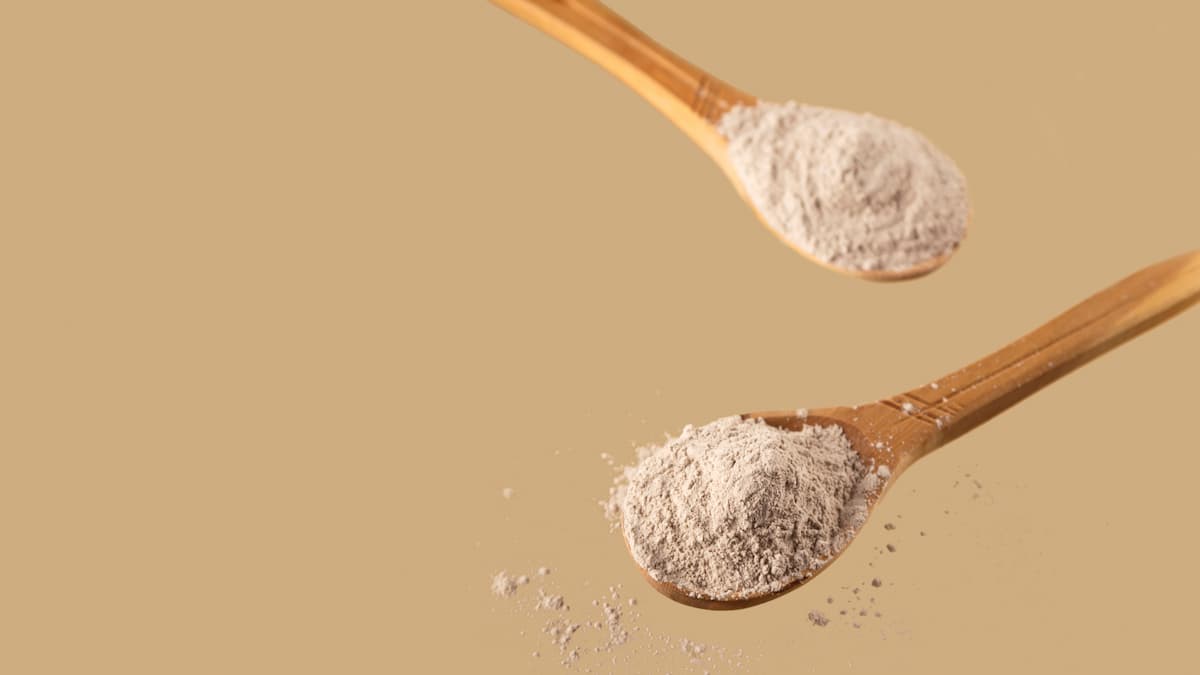
Everything you want to know about COLLinstant collagen.

Collibre collagen is an interesting supplement in shot form.
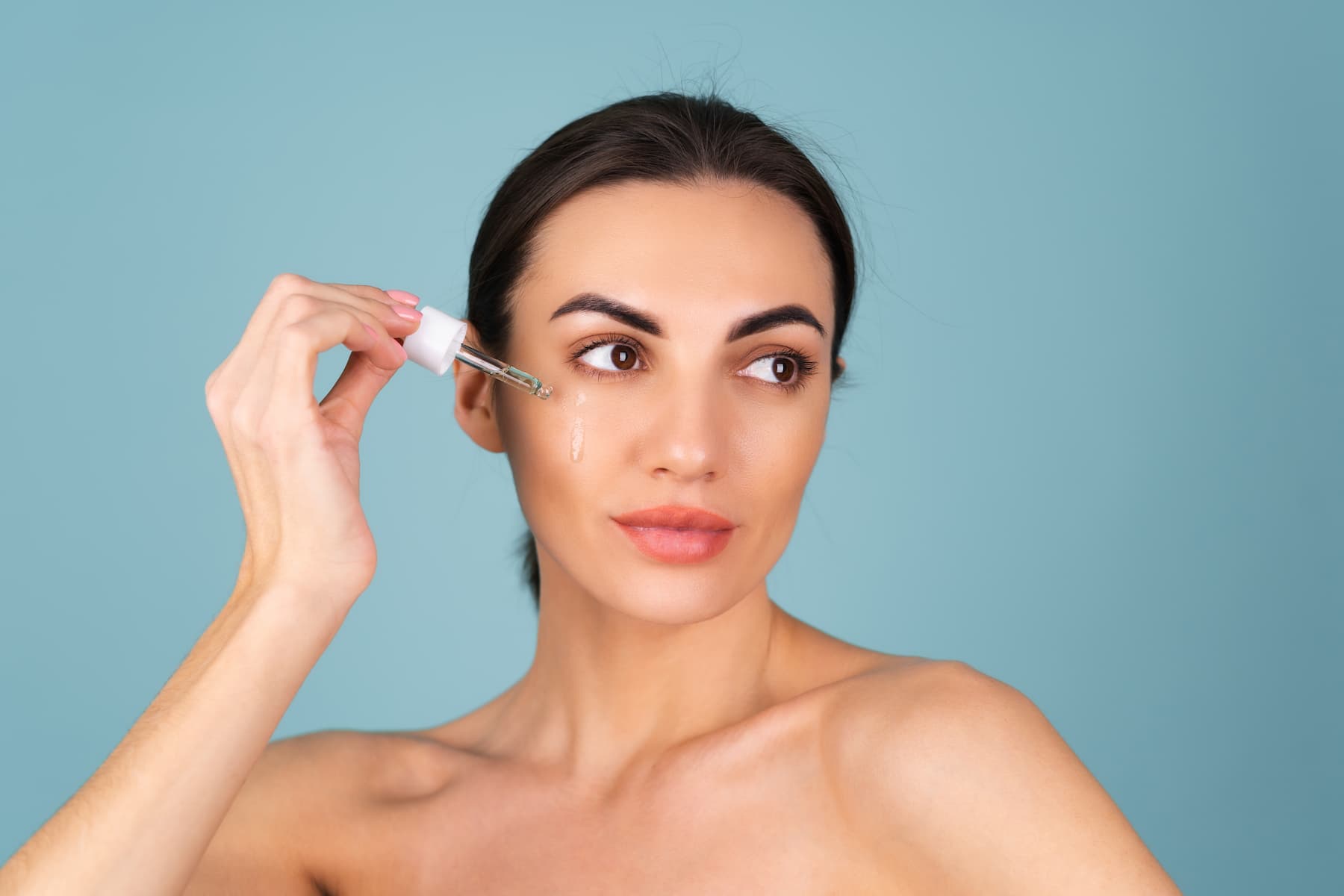
Solgar collagen with hyaluronic acid is a dietary supplement that supports skin and joint health.
